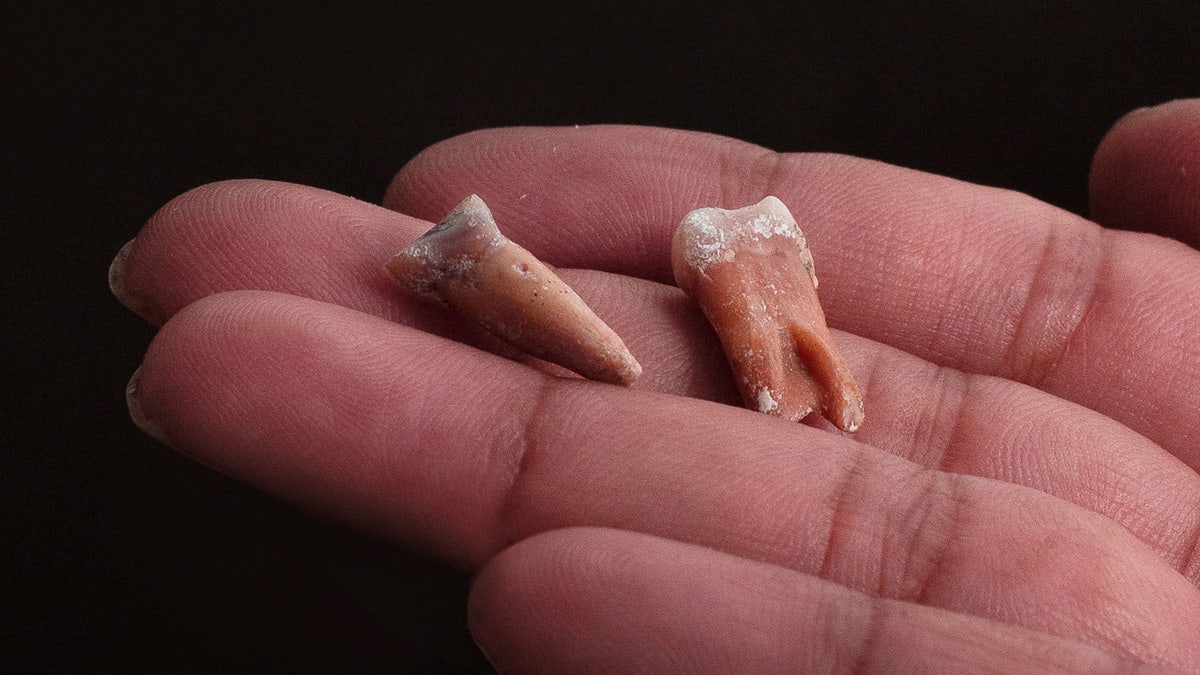
This 2016 picture provided by Kinez Riza shows teeth which scientists say are about 700,000 years old, from either from Homo floresiensis or a related species (Kinez Riza via AP)
Scientists say that fossils found on an Indonesian island in 2014 belong to ancestors of the so-called "hobbits," our extinct, 3 ½ -foot-tall evolutionary cousins that gained fame more than a decade ago after their remains were found in a cave there.
The fossils are about 700,000 years old, extending the hobbit story far backward from the original remains, which date to just 50,000 years ago.
Scientists say the six isolated teeth and a jaw fragment come either from hobbits or a related species. The fossils were excavated about 46 miles from the cave where the first hobbit remains were found.
The discovery on the island of Flores was described in two papers published Wednesday in the journal Nature.
The newfound fossils "strongly suggest" that the hobbits evolved from members of Homo erectus living in Asia, Yousuke Kaifu of Tokyo's National Museum of Nature and Science told Reuters.
Paleontologist Gerrit van den Bergh of Australia's University of Wollongong, who led the team that discovered the new fossils, says the find proves that Homo erectus found their way to Flores far earlier than first thought.
"My personal opinion is they got there about one million years ago by some kind of freak accident, probably a tsunami," van den Bergh told the Australian Associated Press.
Van den Bergh believes that after being stranded on Flores, members of the Homo erectus slowly shrank due to diet restrictions and lack of large predators.
"You need less food [by being small], there is no danger and you can probably also be better able to climb trees," he said.








































